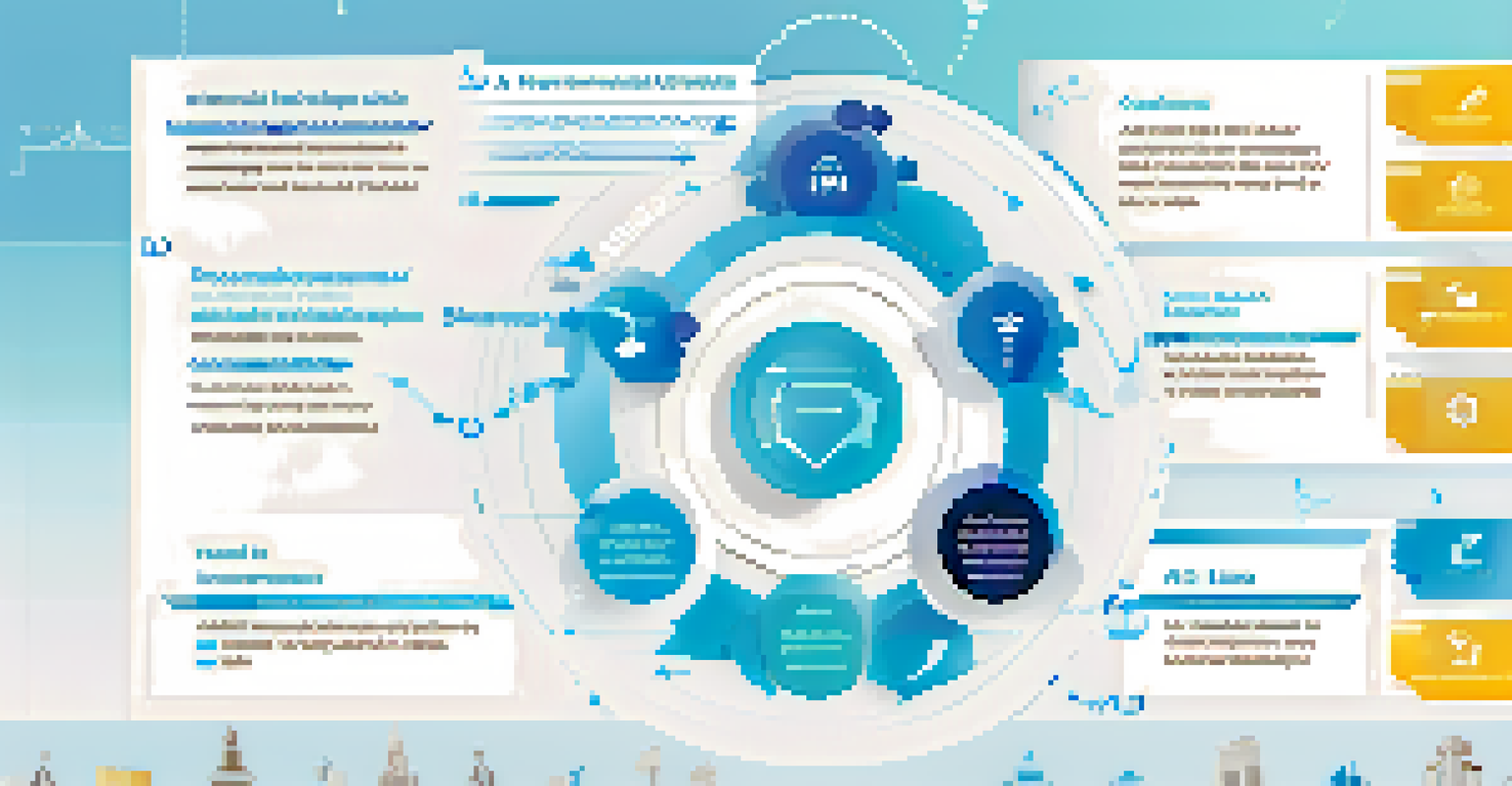The Impact of AI on Legal Careers and Job Functions

Understanding AI's Role in the Legal Sector
Artificial Intelligence (AI) is rapidly changing the landscape of various industries, and the legal sector is no exception. From automating mundane tasks to providing advanced analytical tools, AI is becoming an integral part of legal practice. It's important for legal professionals to understand how AI functions and the potential benefits it brings to their daily operations.
AI is not a replacement for lawyers, but a tool that can enhance their capabilities and improve client outcomes.
For instance, AI can quickly sift through vast amounts of legal documents, identifying relevant information far faster than a human could. This not only saves time but also reduces the chances of overlooking crucial details. As legal professionals embrace these technologies, they can focus more on strategic thinking and creative problem-solving, which are vital to their roles.
Moreover, the integration of AI in legal work can lead to improved accuracy in legal research and case analysis. This shift towards a more tech-driven approach means that lawyers can enhance their services, ultimately benefiting their clients and improving outcomes.
AI Tools Transforming Legal Research and Analysis
One of the most significant impacts of AI on legal careers is the transformation of legal research. Traditional research methods can be time-consuming and often require extensive manpower. However, AI-powered platforms can analyze case law, statutes, and regulations in a fraction of the time, providing lawyers with precise, relevant results almost instantly.

For example, tools like ROSS Intelligence utilize natural language processing to help lawyers pose questions in everyday language, yielding accurate legal insights. This not only streamlines the research process but also democratizes access to legal information, allowing smaller firms to compete with larger practices.
AI Enhances Legal Research Efficiency
AI-powered tools drastically reduce the time lawyers spend on legal research by providing precise results instantly.
Ultimately, the ability to conduct thorough research quickly means lawyers can spend more time crafting compelling arguments and less time buried in paperwork. This shift not only enhances productivity but also elevates the quality of legal work produced.
AI's Role in Document Review and Management
Document review is a critical aspect of legal practice, and AI is revolutionizing how it's done. Traditionally, this process involves countless hours of manual review, which can be labor-intensive and prone to human error. AI-driven tools can scan, categorize, and extract relevant information from documents quickly and with high accuracy.
The integration of AI into legal practice offers unprecedented opportunities to improve efficiency and accessibility in the legal field.
For instance, platforms like Everlaw and Logikcull leverage AI to automate document review, significantly reducing the time and costs typically associated with this process. This not only allows lawyers to focus on more complex legal tasks but also enhances the overall efficiency of legal proceedings.
As a result, legal teams can deliver more timely and cost-effective services to their clients, ultimately improving satisfaction and fostering long-term relationships.
Enhancing Client Interaction with AI Solutions
AI is also transforming how lawyers interact with clients. Chatbots and virtual assistants are becoming common tools in law firms, providing clients with immediate responses to basic inquiries. This not only improves client satisfaction but also allows lawyers to allocate their time to more pressing legal matters.
For example, a chatbot can handle routine questions about case status or billing, which can free up valuable time for attorneys to focus on more complex legal issues. This shift enhances the overall client experience, as clients receive timely information and support.
AI Revolutionizes Document Review
AI-driven platforms automate document review, allowing legal teams to focus on more complex tasks and improve efficiency.
In this way, AI serves as a bridge between clients and legal professionals, fostering better communication and engagement throughout the legal process.
AI and Predictive Analytics in Legal Decision-Making
Predictive analytics is another exciting area where AI is making waves in the legal industry. By analyzing historical data, AI can help lawyers predict the likely outcomes of cases based on various factors. This capability is invaluable for strategic planning and risk assessment.
For instance, using AI tools, a lawyer can evaluate past court rulings and judge behavior to make informed predictions about how a case might unfold. This data-driven approach equips legal professionals with insights that can shape their strategies and client advice.
Consequently, leveraging predictive analytics can lead to more successful case outcomes and enhance the overall decision-making process within law firms.
The Shift in Required Legal Skills Due to AI
As AI continues to reshape the legal landscape, the skills required of legal professionals are evolving too. While traditional legal knowledge remains essential, there is an increasing demand for tech-savvy lawyers who can navigate AI tools effectively. Understanding how to leverage technology is becoming a critical component of legal practice.
For instance, lawyers may need to develop skills in data analysis or familiarize themselves with specific AI software used for research and case management. This shift means that law schools and continuing education programs are adapting their curricula to prepare future lawyers for a tech-driven legal environment.
Tech Skills Essential for Lawyers
As AI reshapes the legal landscape, there is a growing demand for lawyers to develop tech-savvy skills to effectively utilize AI tools.
Ultimately, the ability to integrate AI into legal practice will set professionals apart in a competitive job market, highlighting the importance of ongoing learning and adaptability.
Navigating Ethical Considerations in AI Legal Applications
With the rise of AI in the legal field, ethical considerations are becoming increasingly important. Legal professionals must navigate issues such as data privacy, bias in AI algorithms, and the potential for job displacement. Understanding these ethical implications is crucial for maintaining public trust and ensuring fair practices.
For example, if AI systems are trained on biased data, they may produce biased outcomes, which could affect case decisions. Lawyers need to be vigilant about the technology they employ and advocate for transparency and fairness in AI applications.

By prioritizing ethical considerations, legal professionals can harness AI's benefits while mitigating risks, ensuring that technology serves to enhance justice rather than undermine it.